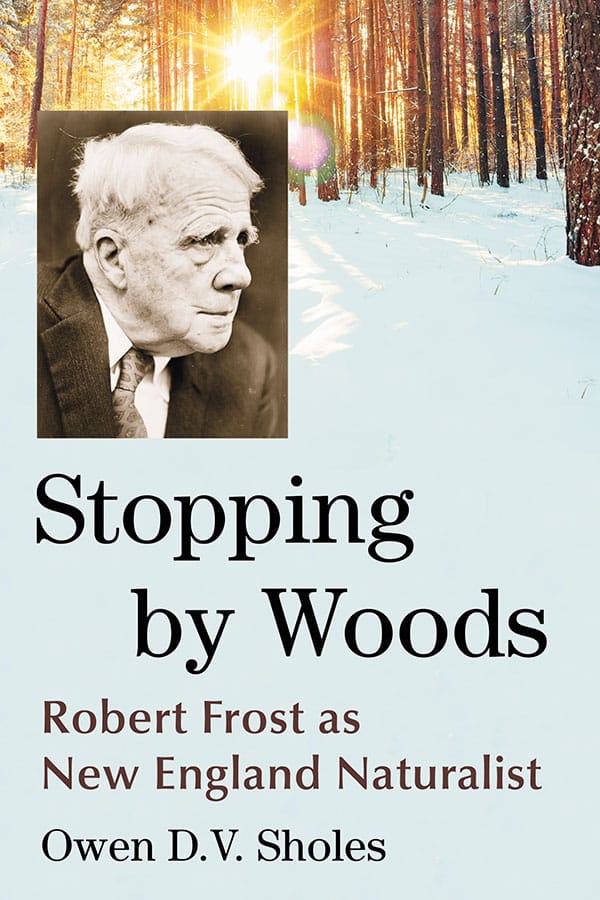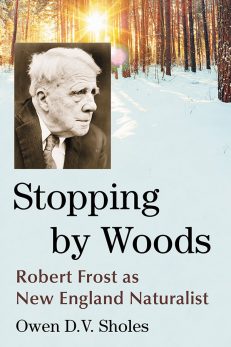Stopping by Woods
Robert Frost as New England Naturalist
Original price was: $39.95.$31.99Current price is: $31.99.
In stock
About the Book
Robert Frost was a practicing farmer, a skilled naturalist and one of America’s best-loved poets. His body of work provides a vivid and compelling narrative of New England’s changing environment—though it can be hard to discern when its parts are scattered through hundreds of different poems, voices and moods.
This book pieces together Frost’s environmental commentary, examining his poems thematically and in a logical order. In them, homesteads are carved out of the forest, families make their living from an obdurate land, property is abandoned when it fails to sell, and plants and animals reclaim deserted farms.
Frost bemoaned the loss of people from the land but also celebrated the flora and fauna that thrived in fallow fields and empty barns.
About the Author(s)
Bibliographic Details
Owen D.V. Sholes
Format: softcover (6 x 9)
Pages: 190
Bibliographic Info: notes, bibliography, index
Copyright Date: 2018
pISBN: 978-1-4766-7318-9
eISBN: 978-1-4766-3519-4
Imprint: McFarland
Table of Contents
Acknowledgments ix
Preface: Why Would an Ecologist Write About Robert Frost? 1
Prologue: “Country things” 7
Introduction: “Like a pistil after the petals go” 13
Subduing the Land: “Teams that came by the stony road” 23
Farming: “The place’s name” 48
Seasons: “Brush the mow with the summer load” 68
Agrarian Diaspora: “From too much dwelling on what has been” 95
Ecological Succession: “They rejoiced in the nest they kept” 102
Life Cycles in a Resurgent Nature: “For them there was really nothing sad” 113
Conclusion: “Versed in country things” 138
Chapter Notes 147
Further Reading and Sources 163
Index 173
Book Reviews & Awards
- “This work adds to, and strengthens, a growing literature on the similarities—and the strengths of pairing—poetry and science.”—BioScience
- “Sholes quite literally grounds Frost’s poems in the natural and cultural landscapes that inspired them, letting readers know that his work is not simply a matter of pure metaphor, not amenable merely to context-free textual analysis, but is also about a real place with real ecological conditions and material characteristics—about real stone walls and real spring pools, not just ideas about such things. Readers who never considered that Frost himself might know something about ecology will have their eyes opened.”—Kent C. Ryden, author Landscape with Figures: Nature and Culture in New England





